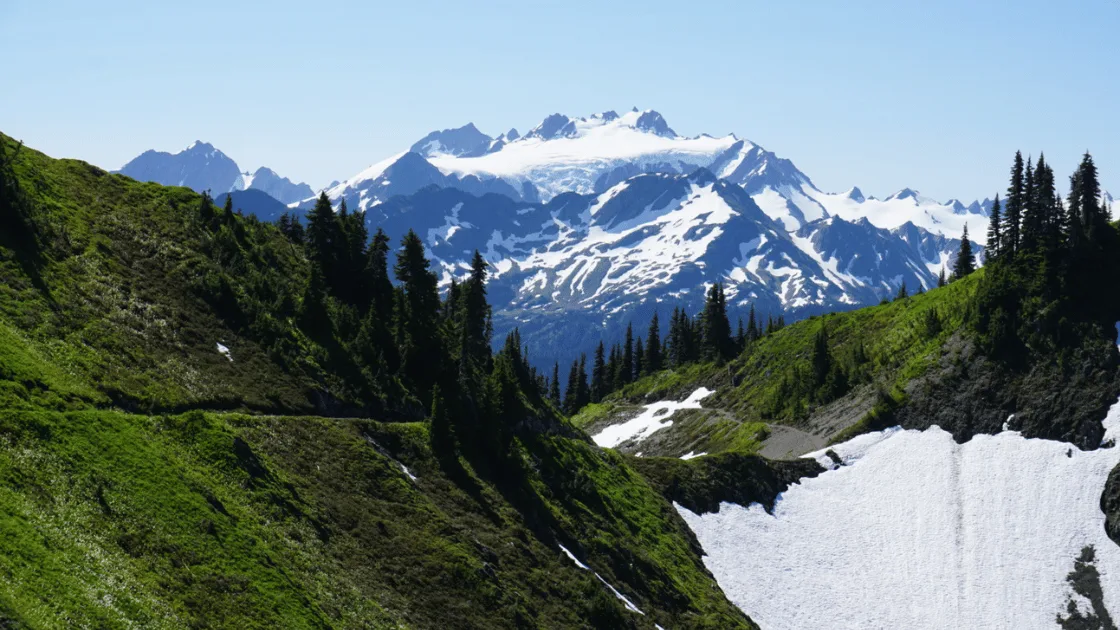As temperatures continue to rise worldwide, the effects of climate change are becoming more evident, particularly in the diverse landscapes of Washington state. As an outdoor gear rental company based in Seattle, GeerGarage is committed to promoting sustainable practices within outdoor recreation opportunities in Washington.
This article will delve into the science behind rising temperatures, unpredictable weather fluctuations, and the impact on natural habitats and outdoor recreation in Washington. We will explore three key areas of climate change impact in Washington state: shifts in weather patterns, effects on ecosystems and wildlife, and ramifications for outdoor recreation. By understanding these impacts and acknowledging their far-reaching influence on natural landscapes and human activities, we hope to inspire thoughtful engagement in sustainability efforts, both individually and collectively.
Shifts in Washington State Weather Patterns and Climate
Global warming's influence on Washington's climate is evident in temperature increases, precipitation pattern alterations, and more frequent extreme weather events. These shifts have significant consequences for the state's residents, ecosystems, and economy.
Rising Temperatures: Washington has experienced an average temperature increase of 1.8°F in the last century, with more temperature spikes projected in the future, according to the Environmental Protection Agency (EPA). Rising temperatures lead to more intense heat waves, threatening public health and amplifying the risk of wildfires. Washington experienced a deadly heatwave in 2021, with a recorded 112 heat-related deaths that year—the deadliest in the state’s history. The Washington government also issued another health advisory in 2023 due to another heatwave affecting the Pacific Northwest.
Changes in Precipitation: Although annual precipitation patterns remain variable, there is an observed trend of more frequent, heavy downpours, according to the EPA. These intense rain events increase the risk of flooding, landslides, and erosion.
Extreme Weather Events: Washington has experienced an increasing occurrence of severe storms, droughts, and heat waves. These events strain infrastructure, disrupt ecosystems, and damage property. They also lead to wildfires and widespread smoke. The state is expected to be smokey at the peak of summer each year, which can make it difficult to enjoy the great outdoors.
Effects on Washington Ecosystems and Wildlife
Washington's diverse ecosystems and wildlife populations are also grappling with the repercussions of global warming:
Altered Habitats: Temperature-sensitive species, such as the American pika or wolverine, face shrinking habitats due to diminishing suitable climate ranges. Warmer temperatures also enable the spread of invasive species, which can outcompete native plants and animals. Glaciers in the Pacific Northwest, such as those in Mount Rainier, North Cascades, and Olympic National Parks, are melting rapidly due to rising temperatures, disrupting local ecosystems.
Disrupted Life Cycles: Shifts in climate disrupt the life cycles of many species. For example, global warming has caused some plant species to bloom earlier, affecting the availability of food resources for pollinators such as bees and butterflies.
Ocean Acidification: Increased absorption of carbon dioxide from the atmosphere results in ocean acidification. This phenomenon endangers Washington's diverse marine life, including shellfish populations that play a vital role in the state's economy.
Ramifications for Outdoor Recreation in Washington
Washington State's outdoor recreation industry is inextricably linked to its climate and environment. As global warming continues to impact the weather and ecosystems, outdoor adventures also face challenges.

Winter Recreation: Reduced snowpack and earlier snowmelt impede winter activities such as skiing and snowboarding. The average annual snowpack in the Cascades has declined by approximately roughly 15–35% since the 1950s, posing significant challenges for the ski industry and surrounding communities. This can significantly affect local resorts like Steven's Pass, Alpental, and Crystal Mountain. Peak recreation seasons will be shorter, and continuous rising temperatures could even lead to closures.
Hiking and Wildlife Observation: As climate change alters habitats and disrupts wildlife populations, opportunities for wildlife observation and nature photography may also be affected. Additionally, extreme weather events or unstable conditions may limit access to popular hiking trails.
Water-Based Activities: Unpredictable precipitation patterns and water temperatures may influence water-based recreation, such as rafting, fishing, and boating. Altered river flows or droughts can limit the availability or appeal of these activities, while abnormal water temperatures impact the health of fish populations.
How GeerGarage Supports Sustainable Recreation Practices
In response to the challenges posed by global warming, GeerGarage is committed to promoting sustainable practices within the realm of outdoor recreation:
Outdoor Gear Rental: GeerGarage's gear rental services encourage a reduction in consumer waste by allowing adventurers to borrow equipment as needed rather than purchasing new items that may be used infrequently. This also extends the lifespan of gear and reduces the strain on natural resources.
Education and Advocacy: Through informative articles such as our blog series and partnerships with local environmental organizations, we aim to raise awareness of environmental issues and provide guidance on engaging in sustainable outdoor recreation practices.
Supporting Local Communities: By connecting adventurers with local gear lenders, GeerGarage supports the local economy, promotes the appreciation of Washington's unique landscapes, and fosters a community-centered approach to conservation efforts.
Collective Action Can Slow Climate Change
Global warming continues to leave its mark on Washington state's climate, ecosystems, and recreational opportunities. To mitigate the far-reaching consequences, we must acknowledge the importance of individual and collective action toward sustainable practices. By engaging in sustainable outdoor recreation practices, promoting eco-conscious business models, and supporting strong environmental policies, we can help confront the challenges posed by global warming and protect the landscapes and experiences we cherish for generations to come.
Next time you're recreating outdoors, consider renting the equipment you need instead of buying it. Check out some of the quality camping supplies in Seattle, WA available now for rent on GeerGarage.
